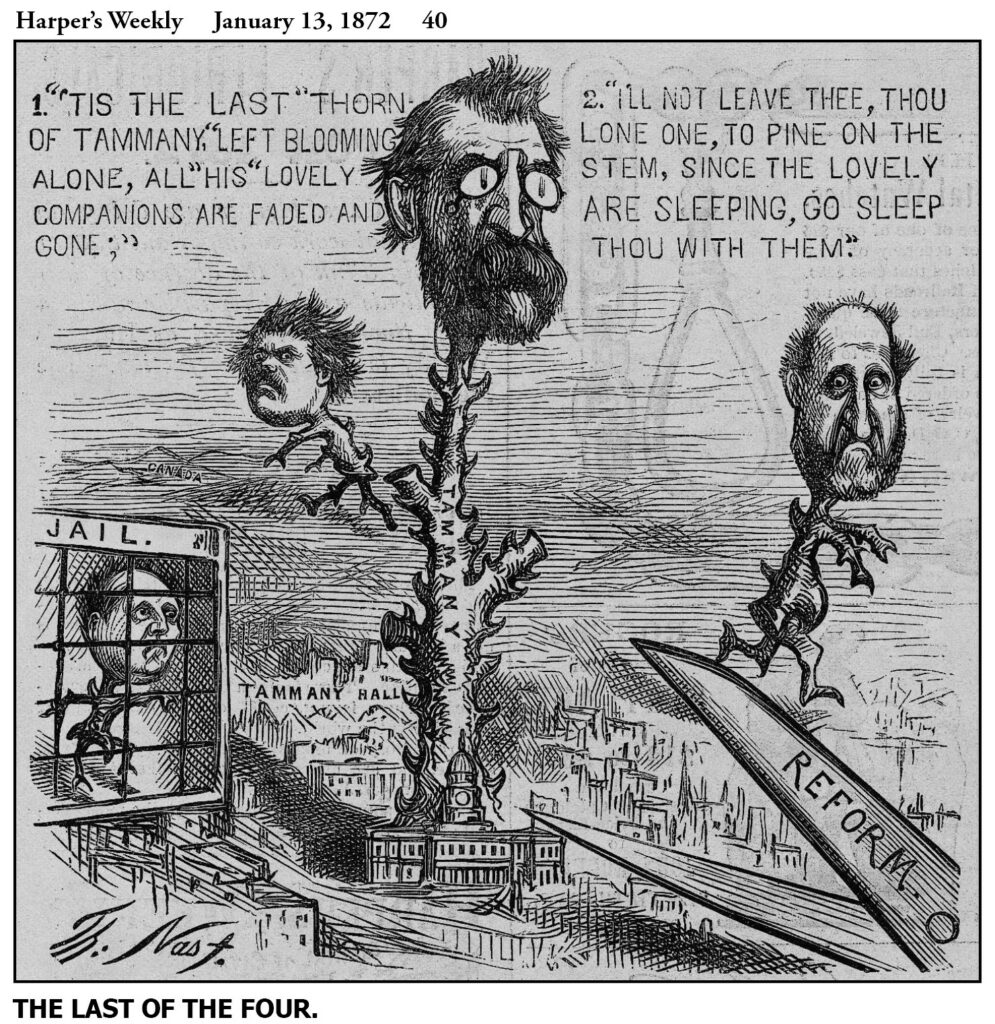
Harper’s Weekly – January 13, 1872
Richard (Slippery Dick) Connolly went on leave after he appointed Andrew Green as his deputy in September. He formally resigned on November 18 and, to his surprise, was arrested on November 25 by Sheriff Matthew Brennan. Bail was set at $1 million, which he was prepared to meet. However, when prosecutor Charles O’Conor came to Connolly’s house to collect, he unexpectedly raised the amount to $1.5 million. Connolly’s wife Mary controlled the purse strings and refused the increase, thereby sending her husband to jail. On December 31, his bail was reduced to a reported $500,000, which she paid. He promptly jumped bail and fled to France via Canada, never to return. He died in Marseille nine years later.
Peter “Brains” Sweeny hated public appearances of any kind, especially in courtrooms, and fled to Montreal in December. From there, he eventually joined his brother James Sweeny in Paris. James, who fronted for Peter and collected Peter’s share of the Ring’s proceeds, died in France. Five years after he left, Peter Sweeny returned to New York, and settled the claims against him for $400,000 — all paid from James’s estate — in June 1877, leaving him with millions of Ring money to spend over the last 34 years of his life.
Sweeny’s payment was the only direct reparation New York City received from any of the four principal Ring participants.
“Elegant Oakey” Hall was The Last of the Four as Nast put it. In October 1871, before the fall of the Ring, he faced a grand jury — charged with malfeasance for failing to audit vouchers but not with corruption or theft — and was not indicted although found “careless and negligent.” Nast depicted the jury as a dozen identical portraits of Hall.
As “the last ‘thorn of Tammany’ left blooming alone, all his lovely companions are faded and gone,” Hall topped a dead Tammany rose bush. Connolly peered from jail, Sweeny headed North to Canada, and Tweed danced on the shears of reform, trying to avoid being clipped.
Nast’s reference was to The Last Rose of Summer written by Irish poet Thomas Moore in 1805.
